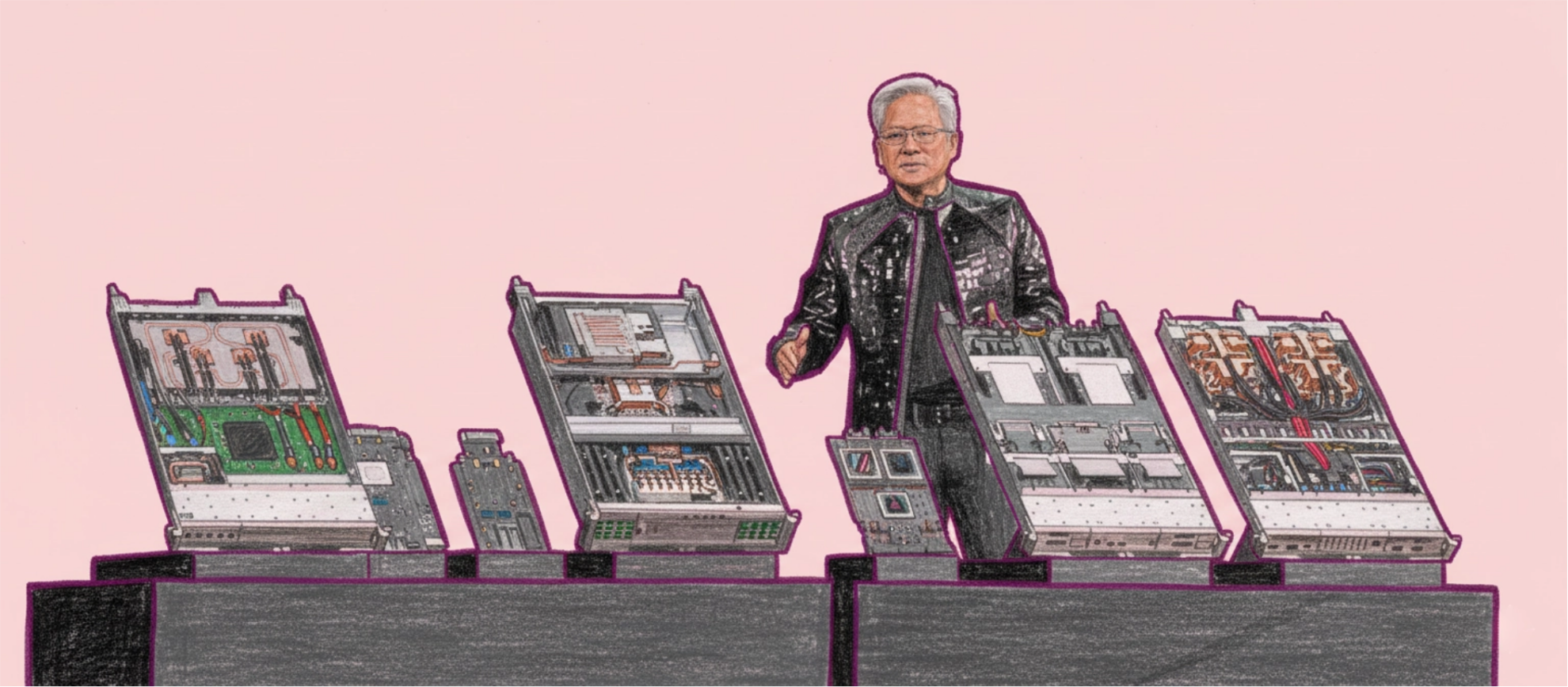Command Palette
Search for a command to run...
Multinational policies/scientific breakthroughs/pioneers/enterprise layout...all the Major Events of AI4S Industry in 2024 in One Article

November 2024Google DeepMind released a report titled "A new golden age of discovery: Seizing the AI for Science Opportunity", pointing out that AI is leading scientific research into a new golden age.Today, AI for Science has moved beyond its initial concept promotion phase and is exploring innovative methods in traditional scientific research fields such as life sciences, geographic information sciences, astronomy and meteorology. It has even provided new solutions to scientific problems that have plagued humanity for centuries.
Looking back at 2024, AI for Science has achieved fruitful results, especially the Nobel Prize awarded at the end of the year, which has made it a "breakthrough". The favor of this heavyweight award has made the public see the value of AI4S. In addition to the continuous revolutionary breakthroughs in academia, from the frequent issuance of industry policies to the heavy support of the capital market, to the layout of the top technology companies, all aspects have demonstrated the huge potential of AI in the field of Science.
Based on this, at this time of bidding farewell to the old and welcoming the new,HyperAI has sorted out and reviewed the high-impact events in the field of AI for Science in 2024.In order to record the development process of the industry and provide reference for researchers in related fields, you are welcome to collect and forward this summary!
Hot Topics:
* AI enters the Nobel Prize and leads a new paradigm in the industry
* DeepMind's "Alpha Series" achieves breakthroughs in multiple fields
* NVIDIA's continued layout in the AI4S field
* AI has achieved several major breakthroughs in breast cancer treatment
* Inventory of pioneers in top academic journals/well-known fund projects
* New pattern of domestic scientific research driven by AI4S special policy
* Review of global AI4S policy layout
AI enters the Nobel Prize and leads a new paradigm in the industry
The Nobel Prize has long been regarded as the highest honor in the scientific community, and is intended to recognize individuals who have made outstanding contributions in the fields of physics, chemistry, physiology or medicine. However, with the rapid development of artificial intelligence technology, AI is profoundly affecting the research methods and directions of various disciplines and becoming a new paradigm for data reasoning. This year's Nobel Prize in Physics and Chemistry was awarded to pioneers in the field of AI, which is a strong response to this trend.
October 8,The 2024 Nobel Prize in Physics has been announced. Geoffrey Hinton, a British-Canadian scientist known as the "Godfather of Artificial Intelligence," and John Hopfield, an American physicist, won the prize for "the discovery and invention of machine learning using artificial neural networks."
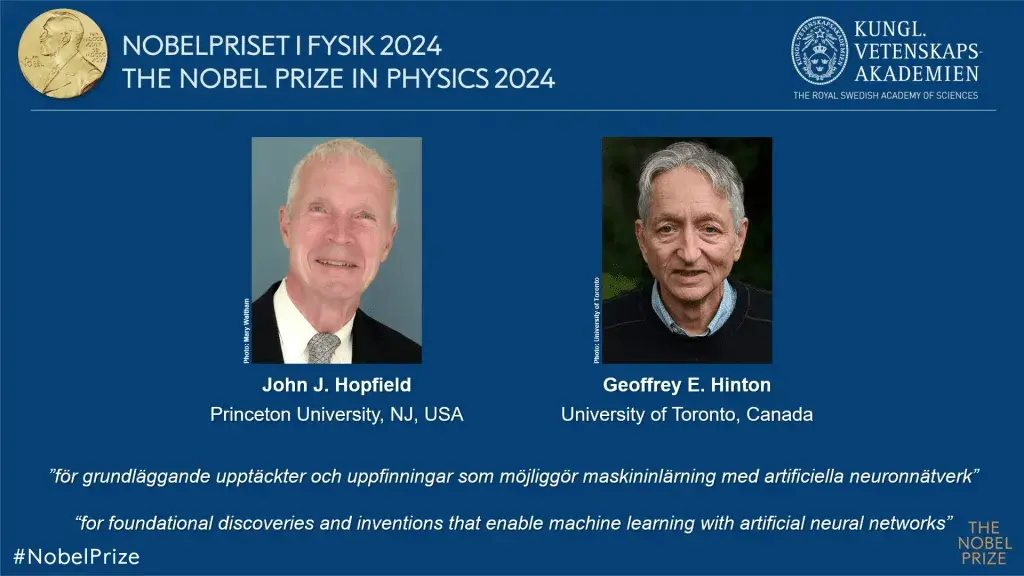
October 9,The 2024 Nobel Prize in Chemistry was also announced, with half of the prize awarded to David Baker, a professor at the University of Washington.In recognition of his contributions to computational protein design,The other half was awarded to Google DeepMind scientists Demis Hassabis and John M. Jumper.In recognition of their contributions to protein structure prediction.
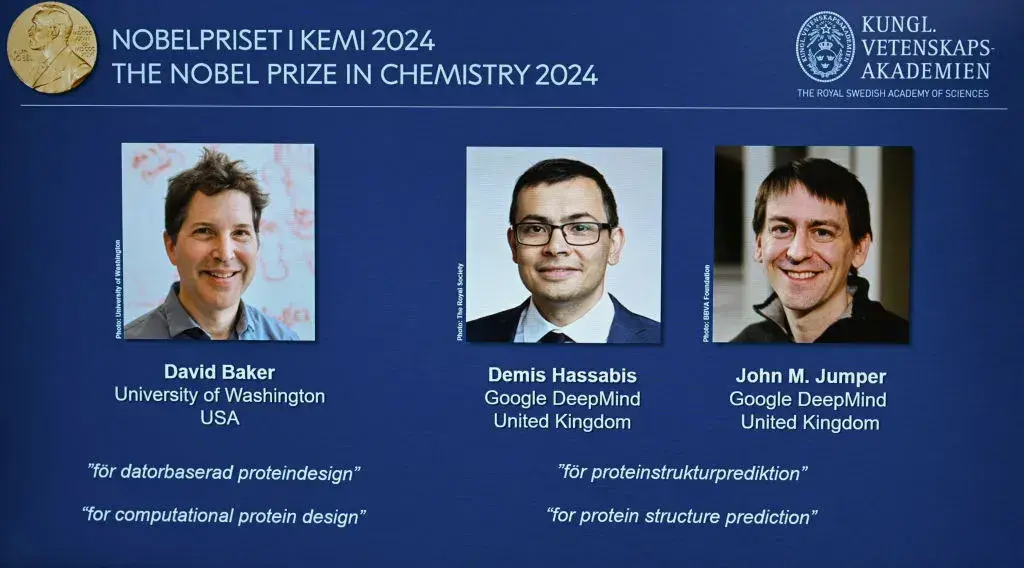
DeepMind Alpha series achieves breakthroughs in multiple fields
Google DeepMind, which made a splash with AlphaGo and now owns AlphaFold, has always been considered a bellwether for industry development. Its "Alpha series" achievements continue to refresh human understanding of the possibilities of artificial intelligence.Looking back to 2024, the "Alpha Series" has achieved major breakthroughs in many fields.
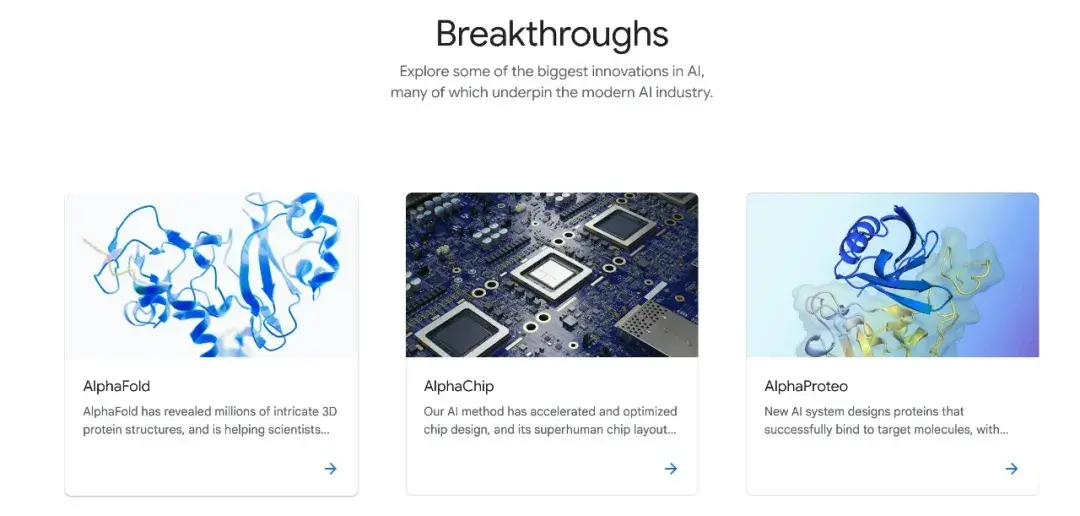
In the field of AI + mathematics,DeepMind released the AlphaProof and AlphaGeometry models, which together solved 4 out of 6 problems in this year's International Mathematical Olympiad (IMO), reaching the same level as the silver medalists in the competition for the first time. Among them, the AlphaGeometry model can solve complex geometry problems close to human Olympic gold medalists, creating a precedent for mathematical reasoning in artificial intelligence.
Click to view detailed report:
AlphaGeometry: DeepMind's massive computing power creates miracles again, but "computing power instead of intelligence" may not be the optimal solution
In the field of AI + Life Sciences, The AlphaFold3 model is a major success, further iterating on AlphaFold2, and can predict the structure of complexes including proteins, nucleic acids, small molecules, ions, and modified residues. The model was open-sourced in November, allowing biochemical and medical scientists to deploy it locally, greatly shortening the research and development process of new drugs and vaccines.
Click to view detailed report:
Complete disassembly of AlphaFold 3, Zhong Bozitao of Shanghai Jiaotong University: Extreme use of data to predict all biomolecular structures with atomic precision, but it is not perfect
Open source address:
At the same time, DeepMind also launched AlphaProteo, the first AI protein model to be verified by wet experiments. On the seven target proteins tested, AlphaProteo's wet laboratory success rate increased from 9% to 88%, 5 to 100 times higher than other methods, and the binding affinity increased by 3 to 300 times.
Click to view detailed report:
DeepMind's new results are criticized as advertisements? AlphaProteo can efficiently design target protein binders with 300 times higher affinity
In the field of AI + chip design,DeepMind published a chip design algorithm, AlphaChip, in Nature, which is an algorithm that accelerates and optimizes computer chip development. AlphaChip has been used in the design of multiple generations of TPU products and can complete chip layout design in a few hours, which would take weeks or months with traditional methods. This marks the arrival of the era of "chip design chips".
Click to view detailed report:
Google reveals its secret weapon TPU, AlphaChip appears in Nature! In-depth analysis of the development of AI design chips
In the field of AI + quantum computing,DeepMind launched AlphaTensor and AlphaQubit. AlphaTensor uses deep reinforcement learning to optimize quantum computing processes, while AlphaQubit, as a neural network-based decoder, identifies quantum computing errors with industry-leading accuracy, laying an important foundation for the construction of reliable quantum computers.
Paper address:
https://www.nature.com/articles/s41586-024-08148-8
NVIDIA's continued layout in the field of AI4S
NVIDIA's layout in the field of AI for Science is one of its important strategies to promote technological innovation in recent years. With its strong hardware foundation, software ecosystem and deep learning technology,Nvidia has become an important player in AI-accelerated scientific research, and its CEO Jensen Huang has emphasized the transformative role of AI in scientific discovery.
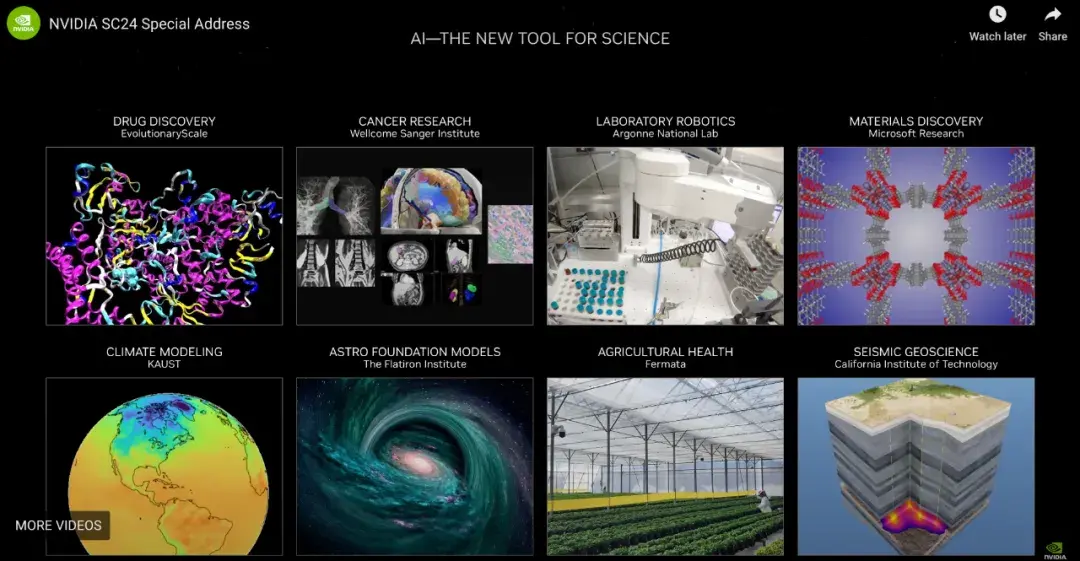
At the 2024 Supercomputing Conference (SC24), NVIDIA launched a series of powerful AI and scientific computing tools. The new technologies cover drug design, climate prediction, quantum computing, materials discovery and many other fields.include:
* Omniverse™ Blueprint for computational fluid dynamics simulation;
* BioNeMo, an open source framework for drug discovery and molecular design. Currently, more than 200 biotech and pharmaceutical companies have integrated BioNeMo into their drug discovery workflows.
* ALCHEMI NIM microservices for chemistry and materials research and Earth-2 NIM microservices for climate and meteorology.
In addition, the CUDA-X library also launched the new cuPyNumeric accelerated computing library, which will bring unprecedented efficiency improvements to researchers in the aerospace, automotive, manufacturing and energy fields.
In addition to continuously improving our own technology,Nvidia, which has always been wealthy, continued to increase its bets on AI + biomedicine in 2024, investing in 5 AI smart drug companies.Including AI pharmaceutical companies Relation Therapeutics, Vilya, Genesis Therapeutics, CytoReason, Terray Therapeutics (second investment),And an AI + protein startup EvolutionaryScale. In early December of this year, Nvidia also acquired Vinbrain, an AI medical company in Vietnam.
AI has made several major breakthroughs in breast cancer treatment
Breast cancer, as the world's leading cancer, has always been the focus of the medical community. Globally, more than 600,000 women die from breast cancer each year. One in eight women in the United States will be diagnosed with breast cancer in their lifetime. Today, scientists are using the power of AI to change the status quo of breast cancer. Looking back at 2024,"AI helps breast cancer detection" related words have become the hottest words in Google's annual search. Its importance is self-evident.
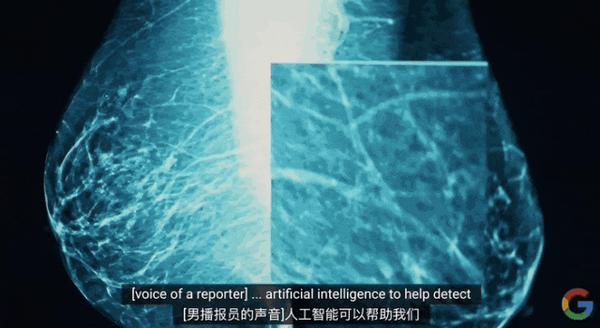
Therefore, the editor will sort out for you the major breakthroughs that AI has made in the field of breast cancer treatment in 2024, covering multiple aspects such as screening, diagnosis, and treatment, which has significantly improved the detection rate and treatment effect of breast cancer. For example:
AI-assisted screening improves detection rates
At the 2024 RSNA Annual Meeting in the United States (RSNA 2024), AI company DeepHealth released a research result showing that the use of AI-enhanced breast cancer screening increased the detection rate by 21%.The study, which detailed 747,604 women who underwent mammography screening over a 12-month period, showed that AI-assisted scanning significantly improved the ability to detect breast cancer early.
DeepHealth website:
https://deephealth.com/population-health/smart-mammo/
Researchers at Northeastern University in the United States have developed a new AI architecture for detecting breast cancer with a diagnostic accuracy of up to 99.72%.The system reduces errors in manual diagnosis and improves diagnostic efficiency by evaluating high-resolution images and historical data to identify cancer patterns and make diagnoses.
Paper address:
https://www.mdpi.com/2072-6694/16/12/2222
AI model predicts the effect of neoadjuvant chemotherapy
Wang Kun, deputy director of the Cancer Hospital of Guangdong Provincial People's Hospital, led the development of the world's first artificial intelligence system for different molecular subtypes of breast cancer.It can accurately predict the RCB grade of breast cancer in the early stage of neoadjuvant chemotherapy. This result can help doctors adjust neoadjuvant chemotherapy regimens, determine the timing of surgery, promote the precision of breast cancer treatment, and reduce the economic burden of patients to a certain extent.
AI provides direction for clinical treatment
Lv Haiquan, Sun Rong, Zhang Kai from Shandong University and Mei Qi from Shanxi Medical University, together with the research team of Spiral Matrix,Using machine learning technology, based on mRNA analysis, a new method BCSC signature was successfully developed to evaluate the characteristics of cancer stem cells in primary breast cancer patient samples. This study not only reveals the core role of polyamine anabolism in BCSC regulation, but also provides new strategies and directions for the clinical treatment of breast cancer.
Click to view detailed report:
Fighting chemotherapy resistance and tumor recurrence! Shandong University research team uses AI to build a powerful defense line for breast cancer stem cells
Inventory of pioneers in top academic journals/well-known fund projects
In an era of rapid development of artificial intelligence, top academic journals and well-known fund projects are becoming important platforms for showcasing global scientific breakthroughs. A group of AI researchers who are at the forefront of science and technology have emerged. Their research has not only expanded the technical boundaries of artificial intelligence, but has also profoundly influenced the innovation and development of traditional fields.
With the announcement of Nature's 100 Most Influential People in 2024, Cell Press's list of the top 50 scientists in the world, and the 2024 AI2050 Fellows, the proportion of artificial intelligence in basic scientific research has increased significantly. This section will focus on some outstanding AI researchers in the above fields and take a peek at the strongest pulse of scientific research in the AI era.
Rémi Lam: Revolutionizing weather forecasting with machine learning
Among the top ten people in Nature in 2024, Rémi Lam, a researcher at Google DeepMind, is among them. Lam is known as a pioneer in using machine learning to improve weather forecasting, and he and his team have been at the forefront of this field over the past few years.
Just a few days before the release of the Nature list, Lam and his team launched a new generation of weather forecasting model GenCast. The model can generate a set of random forecasts for 15 days of global weather in just 8 minutes, which is much faster than traditional weather forecasting models. The birth of GenCast marks the profound application of AI technology in the field of meteorology, bringing new possibilities for accurate weather forecasting.
Click to view detailed report:
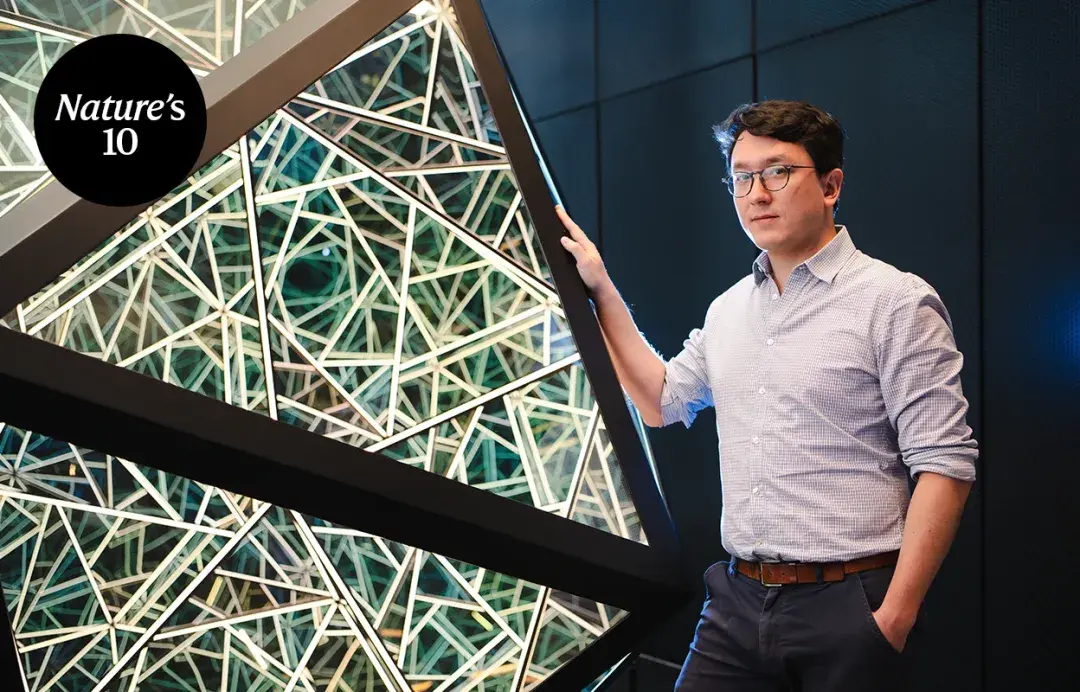
Anne Carpenter: Using AI to discover hidden information in cell images
2024 marks the 50th anniversary of the founding of Cell Press. The journal launched a series of interviews with 50 top researchers who are leading scientific innovation. In addition to AI godmother Fei-Fei Li,Computational biologist Dr. Anne Carpenter was particularly noteworthy.

Anne Carpenter, PhD, is a scientist and senior director of the Imaging Platform at the Broad Institute of MIT and Harvard. She was selected for developing AI-based tools to analyze cell images and accelerate drug discovery. Her innovations have received numerous honors, such as the NSF CAREER Award and the ASCB Mid-Career Award, and she was named one of the top 100 AI leaders in drug discovery.
Original report address:
https://www.cell.com/news-do/50-inspiring-scientists-anne-carpenter
Bijun Tang: Accelerating the discovery of two-dimensional materials with AI
As a long-term research fund project initiated by former Google CEO Eric Schmidt in 2022, "AI2050" selects a group of senior and emerging scholars every year to support their exploration in the interdisciplinary field of AI.Among the 25 fellows selected this year, Bijun Tang, a postdoctoral researcher at Nanyang Technological University, Singapore, is particularly impressive.
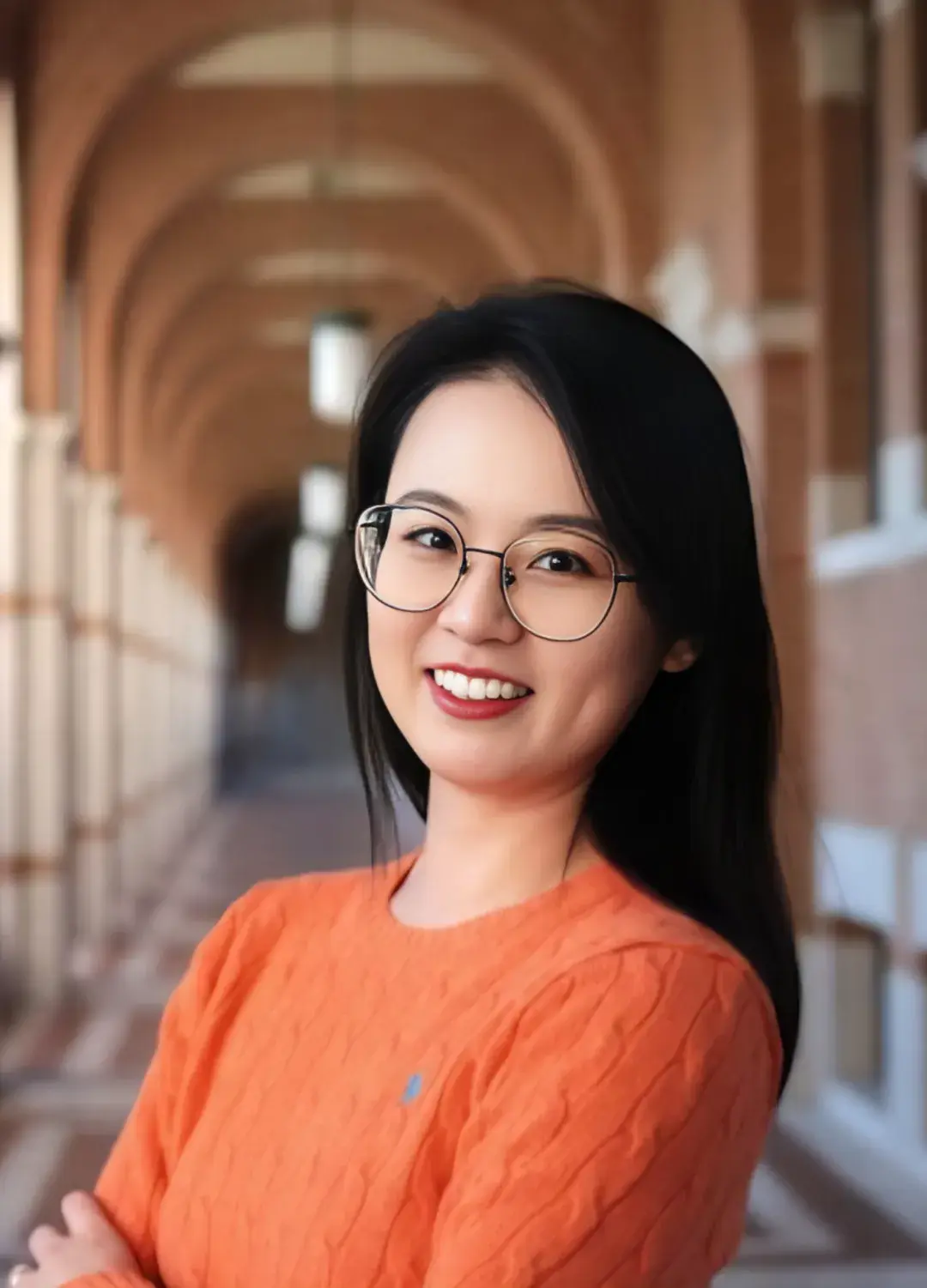
It is reported that Dr. Bijun Tang focuses on the synthesis and engineering of new two-dimensional materials, especially in the development of smart materials using machine learning. So far, she has published more than 30 papers in top journals, with a cumulative citation of more than 1,400 times and an H-index of 18.
Her AI2050 research project, 2DMatAgent, is dedicated to developing an AI-driven platform to accelerate the discovery and development of two-dimensional materials, which has far-reaching implications for the development of nanoelectronics, energy storage, and medical technologies.
Original report address:
https://ai2050.schmidtsciences.org/fellow/bijun-tang/
The new pattern of domestic scientific research driven by AI4S special policy
In order to implement the national "New Generation Artificial Intelligence Development Plan" and follow the cutting-edge trend of artificial intelligence technology,The Ministry of Science and Technology and the National Natural Science Foundation of China jointly launched the AI for Science special deployment in March 2023.Under this policy background, the deep integration of artificial intelligence and scientific research is triggering a revolutionary change in the scientific research paradigm, widely penetrating and promoting the rapid development of many traditional fields such as history, life sciences, earth sciences, and materials chemistry.
2024 is hailed as a bumper year for the field of AI for Science in China. Many research teams have achieved world-renowned breakthroughs, which not only demonstrates the strong pulse of China's scientific research power, but also injects "Chinese wisdom" into global scientific and technological progress. The following will select representative achievements from multiple disciplines to outline the vigorous development of this field.
AI Deciphers the Secrets of Oracle Bones
The research team of Bai Xiang and Liu Yuliang from Huazhong University of Science and Technology, in collaboration with the University of Adelaide, Anyang Normal University and South China University of Technology, successfully trained a conditional diffusion model optimized for oracle bone deciphering - OBSD.This model breaks through the bottleneck of traditional natural language processing in the task of ancient character recognition and provides a new method. It was rated as one of the seven best papers of ACL 2024, injecting modern technological vitality into history and ancient character research.
Click to view detailed report:
Selected for ACL 2024! Introducing zero-shot learning, Huazhong University of Science and Technology released a conditional diffusion model optimized for oracle bone inscriptions deciphering
AI is at the forefront of life sciences
Professor Hong Liang's team from Shanghai Jiao Tong University proposed a series of innovative methods.Including the protein sequence language model PRIME, the small sample learning method FSFP, and the diffusion probability model framework CPDiffusion. Its pre-trained protein language model ProSST and microenvironment-aware graph neural network ProtLGN have made significant progress in protein structure prediction and function analysis.
Click to view the interview with Professor Hong Liang:
Professor Chen Huajun's team at Zhejiang University developed the denoising protein language model DePLM, which improves the performance of protein design and optimization tasks by optimizing evolutionary information. The results were successfully selected for the top conference NeurIPS 2024.
Click to view detailed report:
Selected for NeurIPS 24! Zhejiang University team proposed a new denoising protein language model DePLM, which predicts mutation effects better than SOTA models
Wang Xiang's team from the University of Science and Technology of China proposed a cross-modal protein-text modeling framework ProtT3.By integrating the protein language model (PLM) with the traditional language model (LM), it demonstrates outstanding capabilities in tasks such as protein caption generation, question answering, and retrieval.
Click to view detailed report:
Selected for ACL 2024! To achieve cross-modal interpretation of protein data and text information, Wang Xiang's team from USTC proposed a protein-text generation framework ProtT3
AI helps in multiple fields of earth science applications
The research team of the School of Earth Sciences of Zhejiang University developed the GeoAI series of models.Including EI-GNNWR, osp-GNNWR and ChloroFormer, etc. These models have been widely used in many fields such as geology, geography, atmospheric science and oceanography, and have promoted the development of earth science research towards intelligence.
Click to view detailed report:
Multi-field geoscience applications: Zhejiang University team proposed a series of GeoAI methods to help spatiotemporal modeling and prediction in the fields of geography, oceanography, geology, and atmosphere
AI accelerates a new era of materials exploration
The research group of Xu Yong and Duan Wenhui from Tsinghua University proposed a new framework for density functional theory of neural networks.This theory combines the minimization of the neural network loss function with the energy functional optimization of density functional theory, opening up new research directions for the application of deep learning in materials science and accelerating the efficiency of material design and discovery.
Click to view detailed report:
A new era of material exploration! Tsinghua University's Xu Yong and Duan Wenhui team released a neural network density functional framework to open the black box of material electronic structure prediction!
A review of global AI4S policy layout
Policy is an important tool to guide the healthy development of the industry and technological progress. It provides a clear action framework for the industry and academia by sorting out the development direction, regulating the market order and optimizing resource allocation. Therefore, the last keyword of this annual summary is "policy".
Seven departments work together to use AI to develop future industries
In January 2024, the Ministry of Industry and Information Technology and seven other departments issued the "Implementation Opinions on Promoting the Innovation and Development of Future Industries".The document clearly states that we must use technologies such as artificial intelligence and advanced computing to accurately identify and cultivate high-potential future industries, and provide technical and industrial support for promoting new industrialization.
Policy Links:
https://zwgk.mct.gov.cn/zfxxgkml/kjjy/202401/t20240131_951102.html
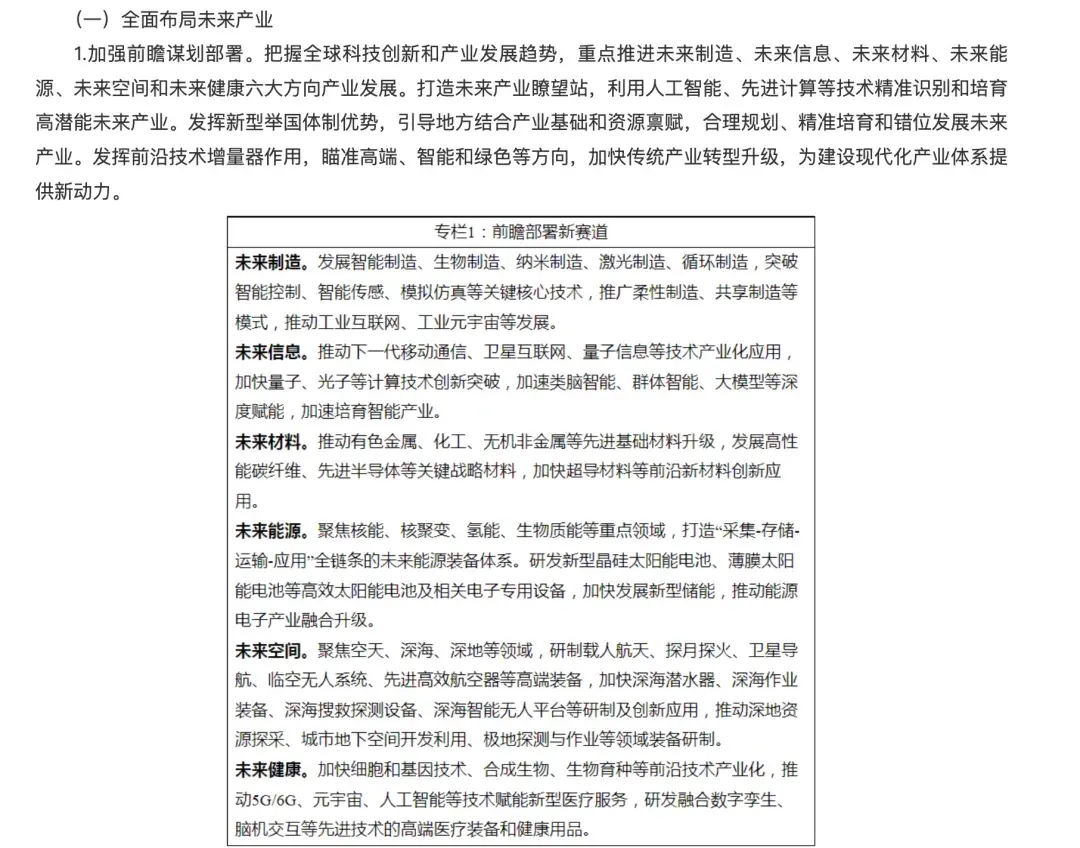
Two sessions focus on AI-driven development
In his government work report, the Premier clearly pointed out that we must deepen the innovative development of the digital economy, accelerate the research and development and application of big data, artificial intelligence, etc., comprehensively implement the "Artificial Intelligence +" action plan, and promote the formation of digital industry clusters with international competitiveness.In addition, representatives from all walks of life, including Liu Qingfeng, Chairman of iFLYTEK, Lei Jun, founder of Xiaomi, and Zhou Hongyi, founder of 360 Group, put forward suggestions on the field of artificial intelligence, including scientific research innovation, talent training, and regulatory optimization.
Click to view detailed report:
During the two sessions, technology leaders mentioned AI4S/talent training/computing power/large models/industry general data sets...
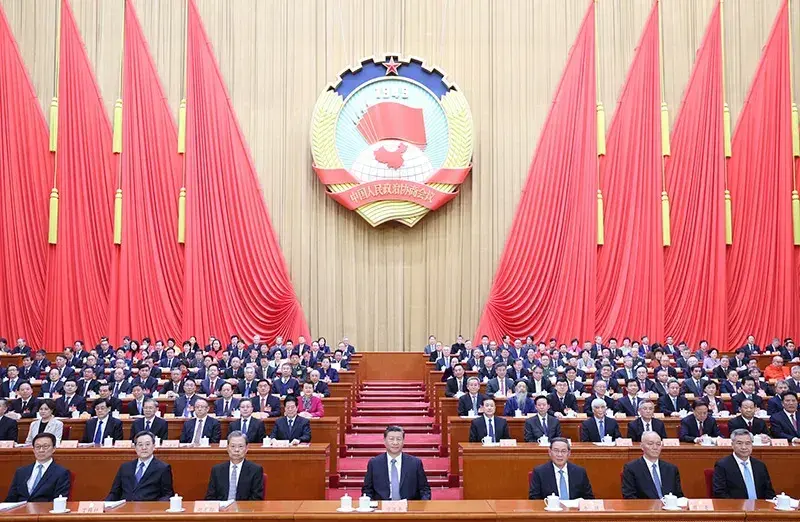
South Korea formulates "AI and digital innovation growth strategy"
April 2024The Ministry of Science and ICT of South Korea announced the establishment of the "AI Strategy Supreme Council", which will serve as the highest comprehensive governance body for artificial intelligence under the cooperation between the government and the private sector in South Korea.The agency is composed of 32 people, including the Minister of Science, ICT and the President of Taejae University as co-chairs, 23 top experts in the field of AI, and 7 officials from various Korean government departments. It is divided into six major departments: AI semiconductors, technology research and development, laws and systems, ethics and safety, talent development, and AI biology.
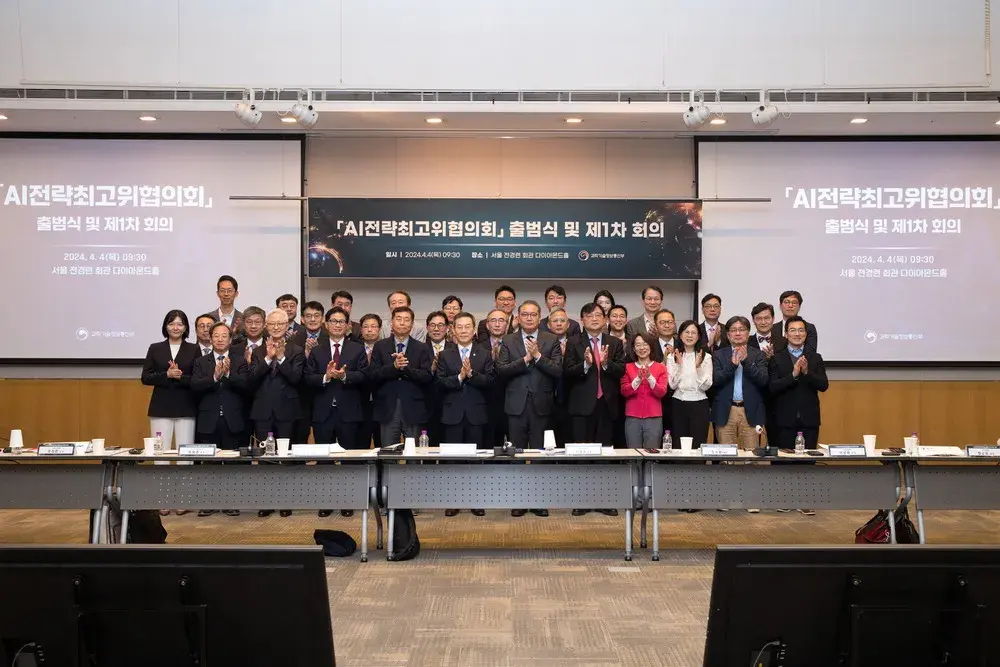
US FASST Program: AI-driven science and national security
May 7, 2024The U.S. Department of Energy announced the launch of the FASST (Frontiers in AI for Science, Security, and Technology) program.The program focuses on developing customized AI models for scientific research, energy optimization, and national security to improve energy efficiency, accelerate scientific discovery, and strengthen national security capabilities. FASST is a representative case of the United States promoting the deep integration of AI technology and industry, further demonstrating the wide application potential of AI in multiple fields.
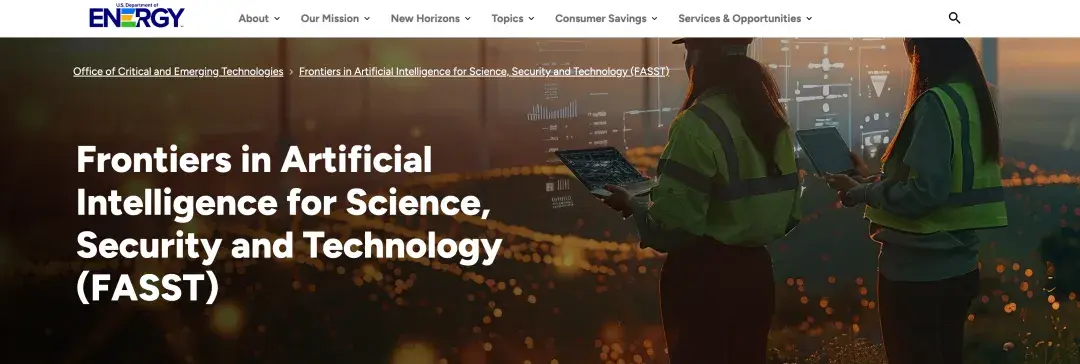
Japan's Ministry of Education, Culture, Sports, Science and Technology released the "White Paper on Science and Technology Innovation", looking forward to the prospect of symbiosis with AI
June 11, 2024The Japanese Ministry of Education, Culture, Sports, Science and Technology has compiled the 2024 edition of the "White Paper on Science and Technology Innovation" entitled "Transformations in Science, Technology and Innovation Brought about by AI".The White Paper has been approved by the Cabinet of the Japanese government. The White Paper introduces the prevalence of AI technology in Japan, research and development trends, and the possibility of using AI in various fields in a special edition. The book also points out the current issues and looks forward to the prospect of coexistence between Japanese society and AI.
Policy Links:
https://tc.keguanjp.com/kgjp_zhengc/kgjp_zhengc/pt20240717000003.html
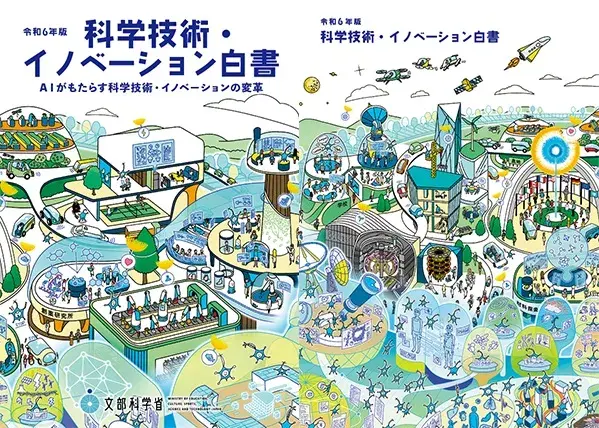
Biden-Harris administration allocates $500 million to fund AI, biotech and synthetic biology
July 3, 2024The Biden-Harris administration will announce $504 million in funding for 12 regional tech hubs.It is mainly used in semiconductors, clean energy, biotechnology, artificial intelligence, quantum computing and other fields, thereby accelerating the development of innovative industries and strengthening national and economic security.
The State-owned Assets Supervision and Administration Commission and the Ministry of Industry and Information Technology jointly work to advance the layout of future industries such as biomanufacturing
October 23, 2024In a signed article, the State-owned Assets Supervision and Administration Commission of the State Council mentioned the need to "plan ahead and cultivate future industries such as quantum technology, nuclear fusion, biomanufacturing, 6G, etc. in stages, and accelerate the creation of a number of strategic emerging industry clusters and industry-leading companies with international competitiveness."On the same day, a spokesperson for the Ministry of Industry and Information Technology emphasized the need to cultivate and expand new industries and new tracks such as the low-altitude economy, commercial aerospace, and biomanufacturing.
Policy Links:
http://www.sasac.gov.cn/n2588025/n
